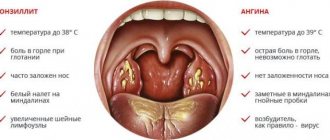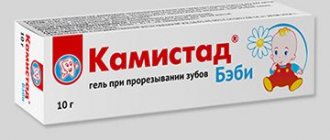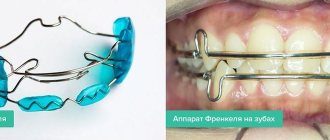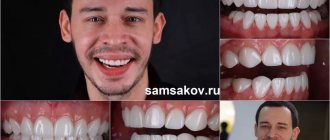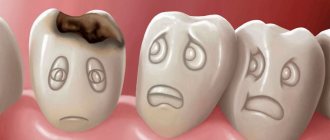Quite often you can hear complaints about a feeling of viscosity in the mouth.
This condition is often accompanied by the following symptoms:
- formation of cracks on the lips;
- roughness of the tongue (at the same time it becomes red);
- hoarseness of voice after waking up;
- unpleasant odor from the mouth;
- difficulty swallowing food;
- thirst, feeling of dry mouth and throat.
To eliminate the discomfort once and for all, you must find out why your mouth feels sticky.
Constant viscosity
If viscosity in the mouth arose a long time ago and does not disappear for a long time, then it may indicate that a person has the following diseases or pathological conditions:
- HIV AIDS;
- impaired glucose tolerance, diabetes mellitus;
- cystic fibrosis;
- Hodgkin's disease (oncological process occurring in the lymphatic system);
- parkinsonism;
- chronic lack of iron in the blood caused by poor diet or diseases of the digestive system;
- high blood pressure;
- diarrhea;
- hormonal fluctuations (this is why pregnant women often complain that they have a sticky mouth);
- breathing problems (occurs in patients who snore or constantly breathe through their mouth);
- weakening of the muscle strength of the palate;
- inflammatory diseases of the oral cavity;
- age-related changes (with aging, the amount of saliva produced sharply decreases);
- damage to nerve fibers located in the neck and head.
In more rare cases, the cause of persistent viscosity is previous surgery to remove the salivary glands or severe head trauma.
Associated symptoms
Often dry mouth and sticky tongue are not the main disease or its symptoms.
As accompanying symptoms with these phenomena, the following occur:
- Increased sweating;
- Thirst;
- Cracked lips and dryness.
The appearance of these signs does not mean the presence of a dangerous or serious disease.
If the patient is aware of his illness, he may notice more specific symptoms:
- Viscosity in the oral cavity is caused by a deficiency of vitamin A, which is accompanied by various problems with the skin, conjunctivitis, severe brittleness and dryness of hair, peeling and pale skin;
- Iron deficiency anemia provokes, in addition to dry mouth, dizziness more often than usual, tinnitus, fatigue, and severe weakness;
- Patients with diabetes suffer from polyuria and rapid weight loss.
Temporary viscosity
As for the situation when a patient periodically has a sticky mouth, the reasons for this may be the following:
- eating salty foods;
- presence of a runny nose;
- too high temperature in the house and/or low humidity;
- long and intense sports training;
- smoking cigarettes or hookah (smoke dries out the mucous membranes).
In addition, discomfort may appear if the person consumed narcotic or toxic substances the day before. This symptom indicates severe intoxication of the body. For the same reason, viscosity develops during a course of radiation therapy and chemotherapy.
How does the disease progress?
Candidiasis has two forms: acute and chronic. Options for the acute form:
- The appearance of a whitish coating.
White masses appear on the mucous membrane of the mouth, often with a cheesy consistency. The plaque is easily removed, but forms again. Under the removed plaque you can notice severe redness and slight swelling.
- Atrophic candidiasis.
In this case, the mucous membrane, on the contrary, dries out, and plaque does not appear. Redness quickly forms, the lingual papillae begin to atrophy and the roughness of the tongue gradually smoothes out.
The chronic form has the following manifestations:
- Hyperplastic candidiasis.
The mucous membrane becomes red and swollen, and white or gray plaques form on it.
- Chronic atrophic candidiasis.
Appears in the mouth of those who wear dentures.
Both of these forms occur in different ways:
- the acute form of the disease lasts no more than 2 months;
- Chronic candidiasis can last more than 2 months.
Viscosity due to drugs
Sometimes there is a sticky feeling in the mouth while taking certain medications.
The most often unpleasant symptoms are provoked by medications of the following groups:
- anxiolytics (anti-anxiety);
- antidepressants;
- laxatives;
- analgesics;
- antihistamines (against allergies);
- antifungal tablets.
It is worth saying that some dietary supplements for weight loss also cause a feeling of viscosity in the mouth. If discomfort develops during treatment of any disease, the patient is advised to carefully study the instructions for the drug. If it has such an effect, it will definitely be written about.
How to get rid of astringent sensations in the oral cavity?
Since xerostomia is a symptom and not a separate disease, you can completely get rid of it only by eliminating the disease that it accompanies or mitigating its manifestations. Since, however, this feeling in itself is very unpleasant, there are many ways to reduce it:
- The first thing to do is increase your fluid intake. It is best to replenish the lack of moisture in the body with water, but other unsweetened non-carbonated drinks, such as tea, are also suitable;
- It is also advisable to increase the humidity in the room. This can be achieved by placing a container of water or several pots of plants in the room;
- reducing the amount of salt in the diet promotes better absorption of fluids and reduces the feeling of dry mouth;
- It’s also worth giving up smoking, or at least doing it less often;
- You should avoid alcohol, as well as the use of mouth rinses containing alcohol - ethanol very much dries out tissues, especially mucous membranes.
You can also increase saliva production by providing the oral mucosa with natural hydration:
- The easiest way to increase salivation is to chew gum or suck on lollipops. It is important that neither chewing gum nor lollipops contain sugar, as it can increase the feeling of dryness;
- An infusion of coltsfoot, which is taken orally, also contributes to increased salivation;
- for the same purposes, you can use special preparations, such as Oralbalance or Bioxtra, available in the form of sprays;
- to relieve a slight feeling of dryness, you can also rinse your mouth with water and a small amount of lemon juice;
- To stimulate the salivary glands, you can resort to physiotherapeutic procedures - galvanotherapy of the salivary glands, electrophoresis with potassium iodide, vibration massage. Such procedures are extremely effective.
All these methods will help relieve discomfort and increase saliva production. However, we should not forget about identifying and treating the root cause of xerostomia, otherwise the unpleasant symptoms will return again and again.
Dryness and viscosity in the mouth are unpleasant phenomena that significantly worsen the quality of life. Xerostomia interferes with eating, speaking, leads to hoarseness of the voice and changes in taste sensations. It is not surprising that you want to get rid of all these manifestations as soon as possible. However, there is no need to rush to eliminate the symptom - you should first find out what it indicates. Dryness of the oral mucosa can be a signal of a serious disorder in the body. If you pay attention to this seemingly harmless symptom in a timely manner, you can avoid serious consequences at an early stage.
Viscosity after eating persimmon
Persimmon contains a huge amount of vitamins and microelements, making it not only tasty, but also extremely healthy.
However, sometimes, after coming home from the store and tasting the purchased fruits, the buyer is disappointed. The persimmon turns out to be absolutely not sweet, there is an unpleasant sensation - it sticks in the mouth. It has this property due to its high tannin content. It is also often called tannic acid. It forms various chemical bonds with polysaccharides of natural origin, resulting in a tanning effect.
Tannin, which is contained not only in the fruits, but also in the leaves, as well as the bark of the plant, protects them from being eaten by various animals.
It is worth noting that tannic acid in small dosages does not harm the body. Moreover, it has a beneficial effect on the digestive organs and calms the nervous system.
Patients who have recently undergone surgery on the abdominal organs should be careful in this case.
If a person does not like tart persimmons, then he can easily change its properties by putting the fruits in the freezer for several hours. Also, if desired, they can be placed in the same bag with apples. The latter produce ethylene, a substance that accelerates the ripening process of persimmons.
You can also get rid of astringency by heat treating the fruits or drying them. The same rules apply to sloe berries.
Causes of oral candidiasis
How does the disease occur? The fungus Candida lives in the body from birth and, under certain circumstances, provokes illness. What becomes the trigger for infection:
- weakened immunity;
- taking antibiotics;
- long-term use of removable dentures, especially if they do not fit tightly;
- insufficient oral hygiene;
- smoking;
- oncology;
- use of inhalers for asthma;
- excess simple carbohydrates in the diet;
- pregnancy period;
- infancy or old age.
It can be seen that there are many reasons, often they act together, less often - individually. In general, oral candidiasis is rare in adults. It mainly affects children in the first years of life and older people. Among these categories, the prevalence of the disease reaches 10%.
Diagnosis of causes
If a patient has a sticky mouth, the symptoms that accompany this condition must be taken into account.
So, if discomfort is accompanied by weakness and nausea (which can result in vomiting), it means that he has a stomach pathology (usually gastritis). If all this is accompanied by a high temperature, the patient has probably “caught” a viral or bacterial infection.
Viscosity in the mouth combined with a bitter taste and pain in the side on the right side indicates the presence of gallstones.
Sometimes discomfort is accompanied by the presence of a metallic taste in the mouth. This indicates gum disease.
In addition, if the patient has a sticky mouth, the reasons for this can be identified by
- examination of the oral cavity;
- general blood and urine analysis;
- hormonal research;
- blood tests for vitamins and minerals;
- Ultrasound of the abdominal cavity;
- endoscopic examination of the stomach;
- MRI of the head and neck;
- analysis for infections;
- analysis for tumor markers, etc.
In addition, during diagnosis, it is imperative to measure the patient’s blood pressure.
Treatment for dry mouth
First of all, it is necessary to cope with severe dry mouth. In the case where the root cause of the pathological process lies in the presence of an inflammatory process or in the presence of a stone in the salivary duct, the patient will be scheduled for a consultation with a surgeon. If you have difficulty breathing through your nose, it is best to first undergo an examination by an ENT specialist; you will probably need treatment for nasal diseases.
If dryness appears after prolonged use of mouthwash, it is best to stop using it for a while and monitor the condition of your oral cavity. These causes are quite easy to identify; the symptoms will disappear almost immediately after the action of the provoking factor ceases.
In more advanced situations, local salivation-stimulating medications may be prescribed, for example, in the form of a convenient spray. You may need to stop taking medications that cause a decrease in the production of salivary fluid, or reduce the previously prescribed dose.
previous post
Why does caries form and how can its formation be prevented?
next entry
Consequences
Treatment in this case consists of eliminating the underlying pathology that causes the mouth to stick.
If this is not done, insufficient saliva will increase the risk of oral diseases. In addition, a malfunction of the salivary glands will sooner or later negatively affect the protective functions of the mucous membranes. The result of this can be candidiasis, stomatitis, sore throat, caries and many other diseases.
Also, do not forget that the underlying disease is getting worse every day. That is why it is so important not to delay time, but to go to the doctor. In this case, go to a therapist, and he, in turn, will refer you to another, more specialized specialist. As a rule, see a neurologist, gastroenterologist or dentist.
Main manifestations and symptoms
Most often, dentists hear the following complaints from their patients: dry lips and the oral cavity itself, severe bitterness, burning in the mucous membranes and on the surface of the tongue, a constant desire to drink water, problems with chewing even soft foods, difficulty swallowing, as well as changes in taste sensations or their complete absence.
If the patient has removable orthodontic structures or crowns, their fixation can cause a lot of discomfort due to severe pain. A person can also seek help from an experienced dentist due to speech impairment, lisp, cough, etc.
During an in-person examination, the doctor may detect the following: severely dry and cracked lips, altered texture and color of the mucous membranes, absence or a small amount of salivary fluid compared to normal values, the presence of a white coating, foul odor, and much more. Quite often, abundant accumulation of plaque and fungal infections are also diagnosed.
Rinse solutions and decoctions
The mucous membrane of the oral cavity is very often injured and after this many simply do not know what to do next. Some people simply ignore pain, others panic and immediately look for suitable medications.
But in such a situation you need to act a little differently. Above is information about first aid. First aid measures include rinsing with homemade solutions and decoctions.
Aloe
It is no secret that aloe is famous for its medicinal properties and the list of them can be endless. The juice of this plant helps in gastrointestinal pathologies, skin ailments, and also helps in restoring the immune system and respiratory diseases.
This plant can also be very useful for injuring the oral mucosa. Aloe juice will help solve this problem in a short time. How to use aloe if you burn your tongue?
Every few hours, treat the affected area with the juice of this plant. You can also apply a small piece of aloe to the affected area. This will help cope with the inflammatory process, but affect wound healing.
Lavender oil
To relieve pain, apply lavender oil to the affected area. This remedy will help have an antiseptic, disinfecting effect.
Vitamin E
Vitamin E oil solution is famous for its healing properties. You will need to open the vitamin E capsule and pour the contents onto the affected area.
Sea buckthorn
Sea buckthorn is a plant that is famous for its medicinal properties and will also help with tongue burns. To reduce the pain from a burn, sea buckthorn should be used as an oil. If you don’t have sea buckthorn oil, then the bark and leaves of this plant will also work.
Use sea buckthorn oil, and if you don’t have it, you need to chew the berries and hold them on the affected area. After a few minutes, the pain will become much less.
You can prepare sea buckthorn solution yourself. You need to use sea buckthorn leaves or pieces of bark. First, rinse the leaves thoroughly. Then pour boiling water over the leaves. And wait 30 minutes and you can use the decoction.
? Ctrl+Enter
How long will it hurt?
A minor tongue burn will heal in a couple of weeks or even less without any special treatment. But it should be noted that sometimes it may take 5-6 weeks to heal a tongue burn. In general, everything will depend on how severe the burn is and the reasons for getting it.
Treatment for BMS may require quite a long time (from 3 months to 3 years). Sometimes treatment can be very difficult. Numerous studies show that only a few out of 10 people feel improvement after 7 days of treatment.
Classification of diseases that can cause tongue pain, like a burn
When there are no obvious signs of changes in the mucous membrane, then it is probably due to the following diseases:
- neuroses;
- osteochondrosis;
- neurology of cervical nerves;
- stomach pathologies;
- liver pathologies;
- diabetes mellitus;
- hormonal changes;
- hypovitaminosis.
What can you do at home?
How to remove an unpleasant symptom at home? To do this, you can use the following techniques:
- put ice on the itchy area,
- rinse with soda solution, water with added honey (if there is no allergy), potato juice,
- chew sugar-free gum
- rinse with herbal decoctions - chamomile, coltsfoot, oak, sage,
- hold a piece of propolis in your mouth.
Rinsing with a decoction of oak bark will help in treatment.
Recovery will come faster if you exclude damaging factors: alcohol and cigarettes, sour foods and drinks, soda, spicy foods.
How to treat your tongue
At the very beginning of treatment, first aid cannot be avoided. And then doctors should evaluate the patient’s condition and the degree of the burn.
In order to prevent infection and cope with pain and discomfort, you must:
- Drink and rinse the area with cool water for five minutes.
- Suck on anesthetic lozenges to soothe the pain.
- Rinse your mouth with cool water or salt water (1 teaspoon of salt should be diluted in 8 tablespoons of water).
- Avoid warm or hot liquids, which may cause irritation.
- Take acetaminophen or ibuprofen for pain and inflammation.
- Consider sprinkling some sugar or tasting honey on your tongue to help relieve the pain.
- Check with your doctor or dentist if the burn does not improve or if there are signs of infection.
Signs of infection may include:
- increase in reddened areas;
- increased pain;
- poor quality treatment;
- swelling;
- drainage of pus;
- fever.
Child's tongue burns
Experts call the most common reason for a child's tongue tingling to be a decrease in immunity due to a lack of vitamins, minerals and nutritional compounds. In childhood, the need for these substances is especially high. Even the slightest deficiency can provoke a number of disorders in the body, the symptoms of which include burning of the mucous membrane.
Poor dental hygiene, malocclusion and other dental problems are also common in children and cause inflammation in the mouth. Moreover, it is children who are most likely to get an infection in their mouth or get injured (a child can “taste” metal on their tongue in the winter, bite it while rushing while eating, and so on).
In childhood, a lack of vitamins and minerals can cause burning of the mucous membrane
Important! The reason why a child has a burning sensation in his mouth may be a diet that is inappropriate for his age. For example, young children should not be given foods that are too salty, smoked, or spicy. The baby's mucous membrane has increased permeability to salt, medications, herbs and other active substances; their high concentration in food promotes rapid absorption and subsequent drying of the mucous membrane. Therefore, you need to be careful when preparing a children's diet.
Preventive actions
The only way to prevent a burning sensation in the mouth and throat is to prevent their cause. To do this, it is enough to eat well, increase immunity (play sports, strengthen the body, and so on), give up bad habits, devote enough time to oral hygiene procedures, promptly contact specialists for minor symptoms, undergo medical examinations, and prevent injury to the oral mucosa.
Even a slight burning sensation on the tongue should be a reason to visit a doctor. Most diseases can be quickly eliminated without consequences and prevented from becoming chronic if you pay attention to minor symptoms.

